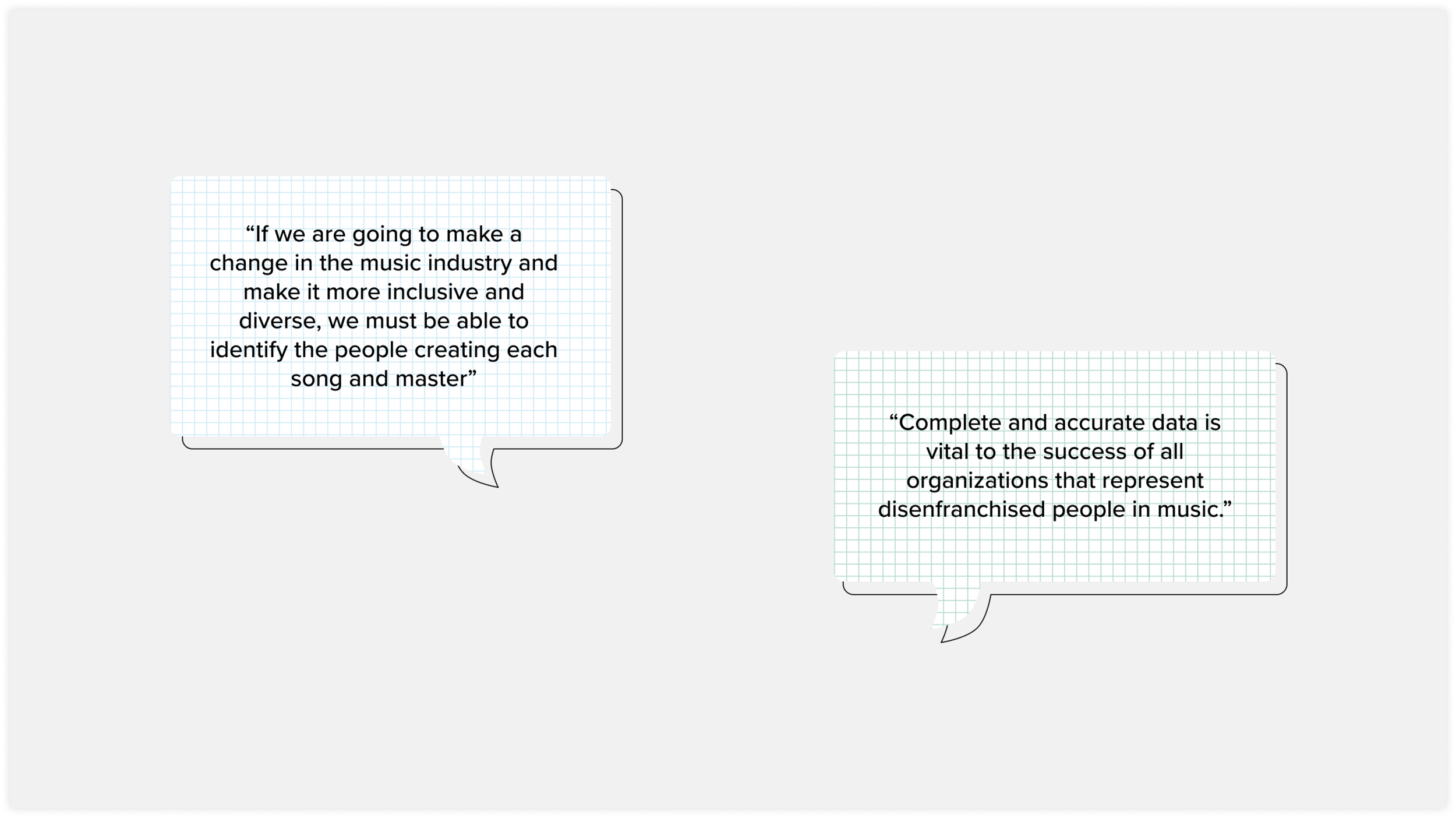
Gender Identification Initiative (GII)
Contact
Any questions about the Gender Identification Initiative should be sent to Monica Corton at monica@gotoelevenentertainment.com
Press
Coalition of 50K under-represented creators calls for addition of gender ID to all music data (Hypebot, 28 July 2021)
Endorsing Organizations
The following organizations endorse this Gender Identification Initiative:
Asian American Collective - led by Grace Lee
Change the Conversation - led by Leslie Fram, Tracy Gershon and Beverly Keel
Diversify the Stage - led by Noelle Scaggs
Gender Amplified, Inc. - led by Ebonie Smith
Maestra Music - led by Georgia Stitt
She is the Music - led by Alicia Keys, Jody Gerson, Ann Mincieli and Sam Kirby
Shesaid.so - led by Andreea Magdalina
We Are Moving the Needle - led by Emily Lazar
Women in CTRL - led by Nadia Khan
Women in Music - led by Nicole Barsalona
What is it?
The Gender Identification Initiative is a coalition of ten organizations serving women and other under-represented creators that are working to obtain accurate data on gender for creators of songs and masters. They are led by Monica Corton, CEO & Founder of Go to Eleven Entertainment. The organizations, who represent 50,000+ creators, include the Asian American Collective, Change the Conversation, Diversify the Stage, Gender Amplified, Inc., Maestra Music, She is the Music, Shesaid.so, We Are Moving the Needle, Women in CTRL and Women in Music.
They are working with The MLC to ask that the gender question be a mandatory field that songwriters (or their publishers) complete at the registration entry point for song data. In addition, they are working with A2IM, MERLIN and the major labels for adoption and usage of the PIE and MEAD DDEX standards for masters so that gender identification may be seen at all levels of the recording process (artists, producers, engineers, etc.).
The goal is that wide adoption at the entry point where data is provided for creators to get paid will finally give the industry accurate data to be able to successfully analyze when women and other under-served communities are involved in the creation of music. This data can then be used to track chart positions, awards, traction in different licensing arenas (film/television/video games/advertising/digital platforms), and many other insights.